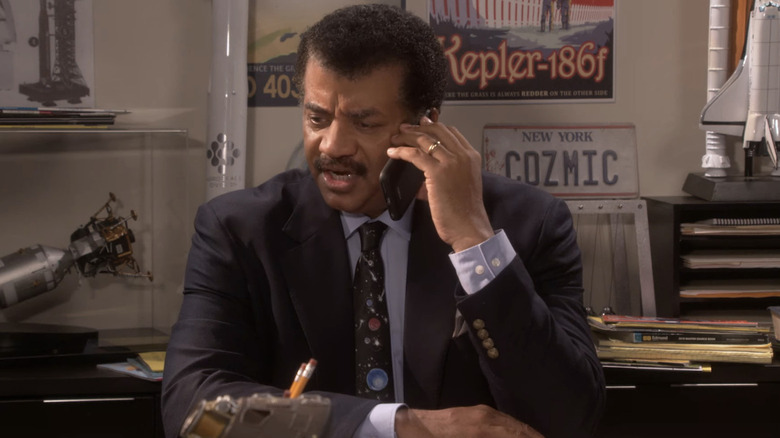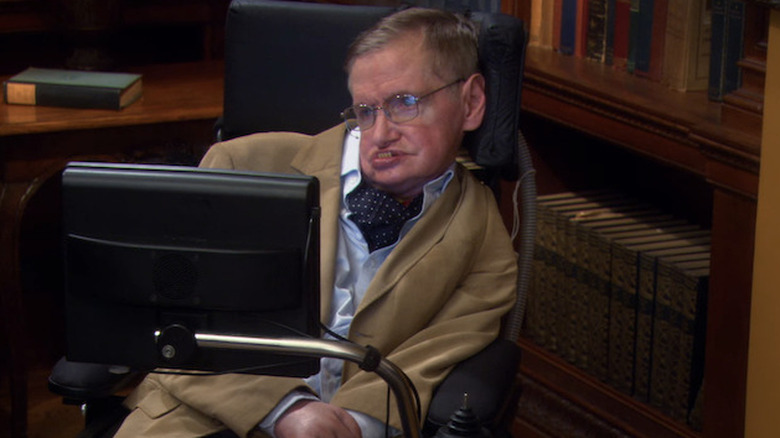The Big Bang Theory Featured More Real Scientists Than You Likely Thought
"The Big Bang Theory" may center its premise around a group of fictional scientist friends, but the series itself is absolutely no stranger to featuring real-life scientists in cameos or even recurring bits. Perhaps one of the more recognizable scientific names is Neil deGrasse Tyson, the popular astrophysicist. He appeared in two episodes throughout the sitcom's run, "The Apology Insufficiency" and "The Conjugal Configuration." In fact, co-creator Bill Prady told Digital Spy that Tyson himself approached the showrunners about appearing on "The Big Bang Theory."
Other big scientific names include George Smoot in Season 2, chemical engineer Francis H. Arnold in Season 12, and noted theoretical physicist Kip Thorne in Season 12. For a series centered around nerd culture and science, "The Big Bang Theory" definitely never shies away from featuring the biggest names in the various fields of science. But it doesn't stop there, as the long-running comedy series also featured many more names, including arguably one of the most accomplished scientists of all time.
Stephen Hawking had a prominent role on The Big Bang Theory
While it's easy to list a plethora of other big names that have appeared on "The Big Bang Theory," from Elon Musk in Season 9 to co-star Mayim Bialik — who holds a degree in neuroscience – it's hard not to discuss the impact that the late Stephen Hawking had in his appearances on the series. Throughout the show's run, the accomplished physicist appeared mostly in voiceovers in seven episodes (via The Hollywood Reporter). However, the comedy series constructed the Season 5 episode "The Hawking Excitation" around the real-life figure, having him appear in person.
During the episode, lead character Sheldon Cooper (Jim Parsons) gets to meet Hawking face-to-face and, as one might expect, things don't exactly go well. This is obviously a recurring element of "The Big Bang Theory," where the scientists' dream interactions with their real-life heroes often go awry. Still, it's a testament to the show's appeal that it was able to bring in so many actual scientific figures to appear in one or more episodes. It's likely as well that this element of the series helped draw in even more fans for the popular CBS sitcom during its highly successful run.

